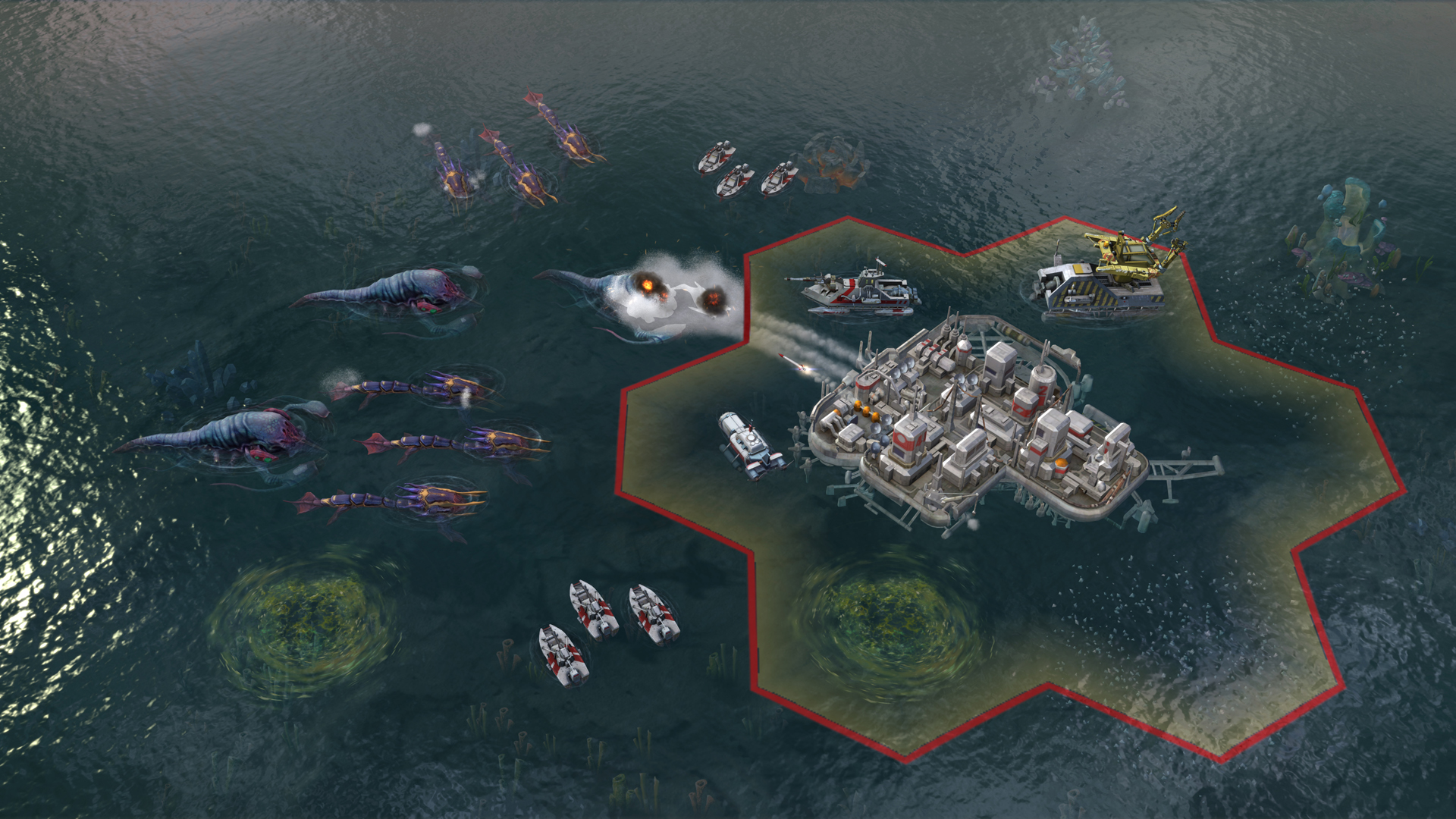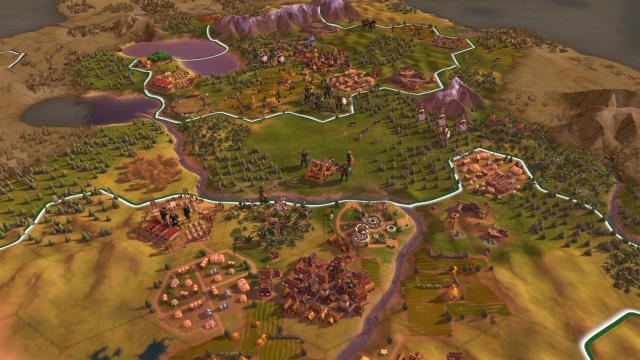“Hey, wanna come to bed and murder Spain with me?”
This is what most nights of the past week have been like for me. It’s what happens when your partner discovers Civilization for the first time.
I have a long history with Civilization, going back to the first game. I discovered it back when my Dad was still working for BHP as a chief engineer. Back then, before 9/11, families of the sailors would sometimes be allowed to stay on what we called “The Ship”. They’re massive vessels. Sailors would often do two, three, four or six month stints at a time. So to stop people from going stir crazy, there’d often be entertainment on board for the crew. Table tennis. Gym equipment. VHS movies that hadn’t been released at Blockbuster yet.
And there was a computer. With Civilization.
I still remember reading about alchemy the first time I discovered it. It wasn’t alchemy itself – the tech in Civilization is Chemistry – but the game’s description explained how alchemy formed the basis of modern chemistry.
The basis for modern Chemistry was laid by the pseudo-science of alchemy, which attempted to turn base metals into gold and silver through the agency of an elixir or Philosopher’s Stone. Alchemy periodically surfaced and degenerated until the real science of Chemistry was found to have economically useful applications. Chemistry was also spurred by the practical needs of Medicine and the theoretical considerations of natural Philosophy.
There was just something fascinating about getting that real-world knowledge. And it was only the original Civilization where that was forced upon you. After making the initial discovery, Civilization 1 would forcibly bring up the short explainer for every bit of tech. This information is still a part of every Civilization game. But from Civ 2 onwards, it’s no longer front and centre. Modern Civ games use a quote from a known historical figure that’s usually relevant to the tech at hand.
I missed the forced history lesson. It was great as a kid. It’s still a great, underrated educational tool.
Of course, I didn’t go deep on Civ for the history. It was that impeccable formula. The wonderful confluence of maths and circumstance that allowed bronze spearmen to surpass Aegis cruisers. The race to Alpha Centauri.
It was brilliant then. It’s still brilliant today.

“LOL, fuck off mate.”
It’s become a regular sound, echoing from the lounge room. Civ fans know it well. It’s another shitty deal from the AI. Can I have one of your luxury resources for the cost of a 14-year old Maccas wage, they humbly ask. Or maybe you’ll part with one of your Great Works for goat and, if you’re feeling generous, a percentage of your nation’s GDP.
Watching my partner over the last few days has been a blissful transition. First: how does this work? Wait, fuck, I hit the wrong button. How do I get back to the diplomacy screen again? A couple of days later, she’s openly laughing at the screen.
Her Civ initation to diplomacy is over.
“Fuck off mate.”
Still, Civ has so many systems and concepts to grapple with. It seems straightforward if you’ve played every game in the series. Less so if you’ve dropped off the bandwagon for a few years, and even more if you’ve never played before. And as someone who gets the principle of a Civ game, but not finer systems like how tourism works, it can seem daunting. That’s especially true on the Switch, where the menus and UI prompts take up almost the entirety of the screen. Credit where credit’s due: You can read everything you need to, but you can’t see anything of your civilisation while you’re doing it.
And despite all that, Civilization still has this incredible accessibility, a way of easing you through all the spreadsheets and arcane formulae. It’s the magic of the franchise. It’s even more magical watching it envelop my partner, two decades on, the same way it did to me on that iron ore tanker when I was a child.

When my partner started playing Civ, I’d mentioned it to a couple of friends. They immediately asked if it was Civ 5 or Civ 6, and I said it was on the Switch. “Ah, that’s the shitter version,” they quipped.
They’re both incredible games, of course, although Civ 5 is still most people’s favourite if you prefer hexes and one unit per tile. But I get the sentiment. We’re not talking about two games from a franchise in isolation. We’re talking the built, lived-in experience over a decade, sometimes more. People have grown up with Civilization. People have played games that have spanned years on their own, sometimes more.
Of course anything that’s not the best Civilization is going to be perceived as a bit shit by the hardcore. But even the most unpopular games with the Civilization name are still an incredible experience for first timers. That’s how good the formula is.
Take Beyond Earth, a release crippled by an absurd Australia Tax at launch that felt more like a mod than a full release. The UI wasn’t great. The sprawling tech tree wasn’t as easy to grapple with compared to, say, understanding why Mining comes before Bronze Working. In Beyond Earth, there’s no direct real-world comparisons for the tech. It takes longer to understand what everything does. And you can venture down a path, clicking stuff until other stuff happens, only to realise that the game’s about to end.
Which it does, brutally and abruptly, without much closure.

But Beyond Earth has good ideas of its own, like an upgrade path for units that means early-game units never have to be wasted. Affinities are a more distinct, better realised version of ideologies. And seeding is a neat way of mixing up the start of each game. The rest, really, is just more of Civ 5.
And that’s an excellent time.
Even Activision’s brief affair with the franchise, Civilization: Call to Power and Call to Power 2, was pretty damn good. The UI was clinical to the point of a horror movie. The game was deeply unbalanced. And the different nations were really just reskins of each other, lacking distinct personalities or playstyles. But you could argue Civ 2 was no different there: if you played as India, they played however you wanted. There wasn’t any inherent bonus or weakness to overcome.
If the AI played Gandhi, you got nuked. Without fail.
Call to Power still added good ideas that the mainline Civilization franchise later adopted. Trade routes and spies quickly became a staple of later Civilizations. And in a way, televangelists were the precursor to the spreading of religion in modern Civ games. And plenty of Civ games would be a lot more fascinating if they had space as a playable, upper layer. Or a deeper layer of engagement with the world’s oceans and subsurface terrain.
Call to Power was even the first Civ to add Australia as a playable faction, led by Gough Whitlam. Imagine that today.
Now, sure, I’d never say someone new to the series should run out and grab Call to Power 2 on GOG or Beyond Earth as their first time. There’s always a good Civ experience available, usually for sale. Hell, it was even free recently.
But it doesn’t really matter which Civ you pick up. Every game has its own way of lulling you into that dreamlike trance, where you never ponder the length of the next turn, or the one after. Before long, you’re thirty turns deep, halfway to conquering Rome.
“Shit. It’s 1:00am,” my partner said to me on the weekend, after hours spent in bed playing Civilization for the first time. “How did that happen?”
Easy: Civilization happened.
This story was originally published in June 2020.

Leave a Reply